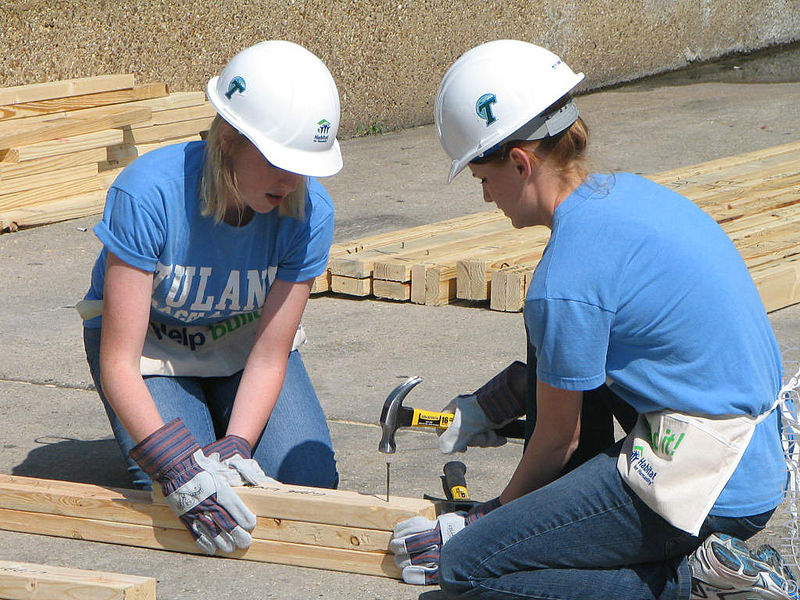This column was written as a part of our ongoing Face off series. To read the corresponding column, click here.
Views expressed in opinion columns are the author’s own.
I believe the attitude toward community service in this country is commendable, and it is very hard to begin a serious critique of what is often the product of good intent and a sincere desire to do well. The very people who accepted me into this college had certainly wanted to see some record of service work, some instance of a selfless contribution to society. Yet I worry that community service has become the epitome of selfishness.
Today, there is almost no college application that does not ask to see some proof of volunteer work. Many high schools require a certain amount of service hours to be completed by the end of each year. And, in instances when community service is not explicitly mandated, it is generally understood to increase your desirability for employment and scholarship opportunities.
For example, a 12-year-old girl in my family is preparing to apply to a very prestigious school in the area. Community service is not required, but her mother believes it will set her apart from the rest of the applicants. However, they had never before considered the idea of community service until this occasion arose.
This is where service work becomes questionable: when the needs and suffering of a community become the extra sentence on your application or resume that will make all the difference between you and another qualified candidate. First, in the case of mandatory community service, it forces the wrong people into extremely sensitive and precarious environments. Without the independent desire to help, the volunteer lacks the sincerity and devotion required to do well. Additionally, people whose parents have handled all their previous difficult circumstances, as in the case of this girl, will hardly be equipped with the necessary sentiments and sensitivity that community service requires. People who have grown up in an area untouched by poverty, where the poor aren’t seen, will hardly understand how to alleviate their situations.
That is not at all to say that the privileged in society lack the capacity or the ability to engage, and even excel, in community service. In fact, I believe the privileged and those far removed from poverty, illness and the other hardships are the ones most obligated to participate in this sort of work. However, it remains very difficult for individuals who have encountered minimal challenges and disruptions in their lives to transport themselves into the lives of those they are made to help.
In summer 2016, I worked at a refugee camp in Palestine. During my time there, a group of medical students had come from Europe to Palestine, and part of their trip required they work with kids from this refugee camp during the day over the course of two weeks.
At first, I didn’t understand what was taking place. All of a sudden, we were told there were no available rooms within our building. Thinking it was only a temporary matter, we spent the day with our group of children on the street. One of the children with us got tired and wanted to go inside. He knocked on the door to the building but was turned away by one of the medical students. The next day, we had an even larger group of children with us on the street. This time, I understood that the visiting students were turning away kids they didn’t want to handle. Eventually, some of the children started leaving the classrooms on their own. They weren’t comfortable with the visitors, even if staying with them offered refuge from the heat outside.
This was a group of medical students who were emotionally and mentally removed from the children they worked with. They were misguided by a inflated sense of their own importance. They turned children away whenever they could, hardly bore those they kept and ran away to the city as soon as their shifts ended. The children sensed all of this.
In our fervor to do good, we often overlook the most crucial aspect of service work: the very people we mean to assist. And often, when we are sending people to underprivileged communities against their will, we are causing great harm. Usually, it reinforces a sense of insignificance and unworthiness in children who have just begun to understand what it means to be born poor and disadvantaged. It is a hurtful confirmation of their suspicions on those from a higher class than theirs. It instills resentment and a deep sense of distrust. And those who mandate service work must understand that it is not simply about performing a number of hours in a specific community, but about the quality of the hours spent there.
Aiyah Sibay is a senior English major. She can be reached at AK_Sibay@hotmail.com.



